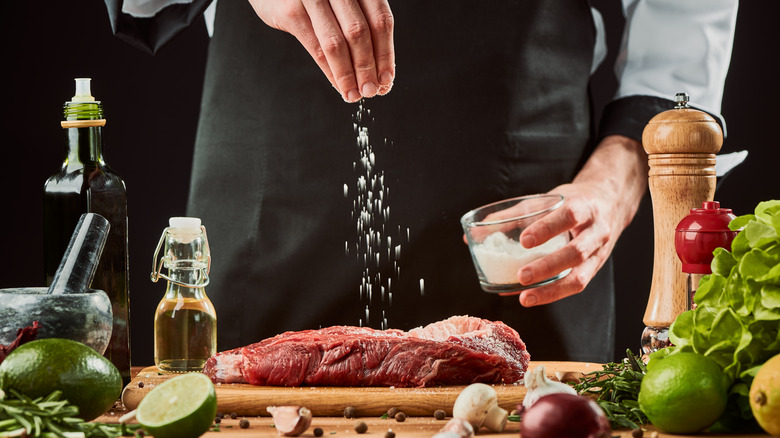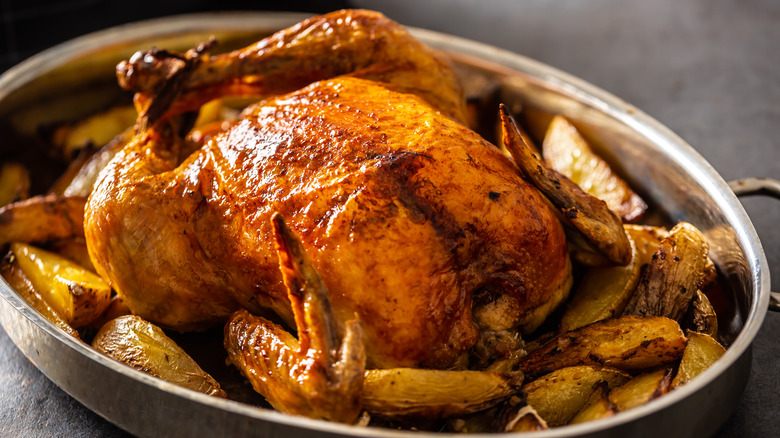The Types Of Meat You Should Leave Uncovered When Salting Overnight
A proper salting technique is an easy method to up your meat game. Simply salting meat and letting it sit long enough to do its thing will impart flavor, tenderize it, and add juiciness. Salt equals enhancement and tends to be sorely underused and underestimated in the kitchen. Of course, when exactly you choose to add it to the cooking process is key.
If you remember back to middle school science class, you may already know the concepts of diffusion and osmosis. Salting ahead of time, also called dry-brining, is just this scientific process with the end result of imparting more moisture and flavor to the meat. The salt draws the moisture out of the meat through osmosis — the movement of water from inside the meat cells to outside.
That moisture is then eventually reabsorbed back into the meat via diffusion, bringing the briny, salty taste with it. Diffusion is defined as movement from an area of high concentration to an area of lower concentration. In the case of meat, it means the movement from the salty exterior to the less salty interior, explains Sasha Marx of Serious Eats.
Dry-brining is a step you don't want to skip if your goal is flavorful meat. However, whether to cover or uncover it while it sits overnight is another question. There is one simple deciding factor to determine the answer, which means taking into account what the actual meat you are salting is and how you prepare it.
Dry equals crispy and browned
Dad Cooks Dinner simplifies uncovered, overnight salting by equating the refrigerator to a humidifier and a dry surface to your meat is exactly what will give you that beautiful browning or Maillard reaction in action. The Maillard reaction, per MasterClass, occurs when food's amino acids and enzymes react with high temperatures. It's the beautiful brown color and flavor you get when you grill or sear meat or toast a piece of bread. Excess water on the surface of the meat simply slows it down.
When you think of it in those terms, when to leave meat uncovered is pretty much common sense. Anything you want to have a crispy, crusty, browned exterior is best left uncovered overnight. Think chicken and turkey skin; a beautifully maple-colored, crispy exterior is one of the best parts. Wrapping poultry will lock in moisture. Beef or a rack of lamb you intend to sear and finish cooking in the oven is also best left uncovered.
You want that Maillard reaction to caramelize the surface as soon as it hits the sizzling pan, and drying it out is the way to ensure that happens. What you should leave salting overnight are cuts that you cook low and slow, like lean roasts and brisket. Leaner cuts that cook for extended periods tend to dry out, so trapping the moisture is to your advantage over having a tough and chewy result (via Cook's Illustrated).

